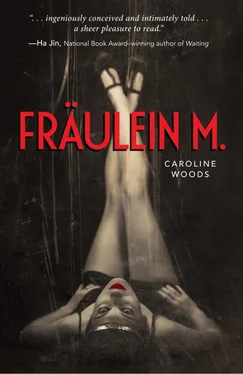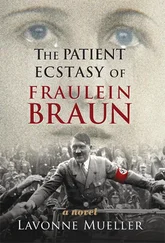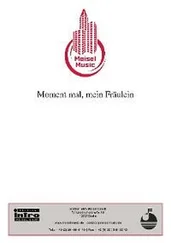Klaus knew this woman was suffering. Yet he sent Grete here not to help her, but to make sure she and her husband paid an unfair tax before daring to leave the country that rejected them. It didn’t take medical training to feel compelled to save Frau Blumenthal. All it took was humanity.
Wincing, Frau Blumenthal lifted herself onto her elbow, her enormous belly shifting and sagging with her effort. Grete thought she saw movement inside, and had to keep herself from feeling for the baby.
“Tell me,” Frau Blumenthal said. “What advice would you give me if I weren’t a Jew, if I were Aryan like you and you’d come to help me rather than interrogate me?”
“ Rosi ,” Herr Blumenthal said, sounding terrified now.
“It’s all right,” Grete told him. She turned Frau Blumenthal’s wrist over and felt for her pulse, as much to buy herself time as to examine the patient. She looked back at Frau Blumenthal’s lively eyes. “I’d say you needed to be in hospital,” she said honestly. “There isn’t much they can do, but they can administer a few drugs that might help, or they could assist if you went into early labor. Your baby or you could die otherwise.”
Behind her, Herr Blumenthal let out a moan, though his wife’s face seemed to relax a little. She loosened her grip on Grete’s arm, winced and flexed her fingers to ease the edema. “And what would you do, if you were me, Frau Doktor?”
“Please, I’m only a nurse—”
“Would you, if you were a Jew—would you walk into a German hospital, a child in your womb, asking for treatment? Would you trust the doctors to save your baby?”
Grete looked around. They had no radio playing, the windows in the kitchen were open; she could hear someone talking in the Hof . “No,” she said. She didn’t even bother to keep her voice down. “I wouldn’t.”
“I thought not. Is this why you didn’t advise me to go to the hospital to begin with?”
“No,” Grete replied. The truth surged up her throat, compelling her to let it out. She felt the way she might feel right before vomiting, nauseous but anticipating relief. “No, I didn’t give you that advice because I am not here to help you. I am here because they know you’re planning to emigrate without paying the property levy, and the SD sent me to report on you.”
Once the words were out they seemed to hover above the bed, lulling all three of them into silence. Sitting between them, Grete could sense the Blumenthals communicating with each other over her head, using only the panic on their faces.
“Now you know,” Grete said, writing in her notepad. “When I come back, we don’t have to pretend. I will return in a week. Meanwhile, do nothing. This is the report I will hand in.” Herr Blumenthal came to read over her shoulder: Nothing of note . Wife too ill to travel. Out of the corner of her eye Grete could see his fists clenching, and she knew what he was thinking—if he killed her, would their problems disappear, or worsen? Could he kill for his wife and unborn child? Would he?
“They are watching you,” she told Frau Blumenthal, whose nostrils flared in fear. “So don’t do anything rash. When I return, perhaps we can discuss a better way to get you to that hospital in Sweden.”
She left, feeling as stunned as she imagined they felt.
On her ride home she wouldn’t congratulate herself; she’d done nothing to help them so far except offer the truth. The image of Frau Blumenthal’s ankles and feet loomed before her every time she closed her eyes.
That night Klaus came over long after dinner, late enough to set her neighbors’ tongues wagging. As they lay together, her secret lay between them. She made love to him as she never had before, taking control, pinning him down by the wrists.
• • •
In the light of day things seemed different, more precarious. Grete wasn’t quite sure what she was doing. All she knew was that it was dangerous, but that she couldn’t stop the truth now that it had begun to spill out.
In Herr Reuter’s study that weekend, after she’d listened to his valves rasp, she took out her notepad right in front of him and prepared the same report she did week after week: No suspicious activity. “Don’t you want to know what I put in my log, Herr Reuter?” she asked as he buttoned his shirt. “About your heart?”
“Not really,” Herr Reuter replied. He was a pudgy man with great brown nipples covered in hair, and he wore round tinted glasses. “Long as I’m not dying.”
She went in front of his chair so that he would have to look up at her and turned her notebook around, putting her finger over her lips. His large face changed little as he took his time reading. Finally his eyes rolled upward, a sneer at the corner of his mouth. “I don’t know what to make of this. I don’t understand… medical speak. You will have to explain.”
She nodded. “It just means there’s little danger. Good news, mein Herr .”
“Good news,” he echoed in a kind of trance.
She went to his radio and turned it on as if she were in her own home, then brought a chair close to his. “I am closing my journal,” she said quietly, even though he could see her do it and replace it in her satchel. “Now tell me about the van.”
“I don’t know what you’re talking about.”
“I think you do.”
Herr Reuter’s breath charged from his nostrils. “Why don’t you just arrest me?”
“Would you rather I did?” She tried to steady her voice. Between the radio, turned up nearly to full volume, her tinnitus, and the hatred on his face—she’d never seen such hatred—she could feel herself losing control. “If you were imprisoned, you would let them down, nicht ? I think someone is waiting for you to take him or her out of the country.”
Blood ticked through a vein on the side of Herr Reuter’s neck, but he said nothing and did not move.
“I want to know when you plan to leave. I can tell the SD whatever I want, Herr Reuter. It won’t take much to have you arrested, as you have pointed out. If you’ll tell me what you’re planning, maybe I can help you.”
He began chuckling, a nasty, porcine sound. “Help from a Nazi bitch, no thank you.”
“I’m the only one who’s noticed the van, Herr Reuter. You’ve done a good job hiding it.”
Now he stood. He began pacing behind her chair, and though she couldn’t hear his footsteps, she could feel them vibrating the floorboards.
“It is not I who plans to emigrate,” he said finally, forcing her to turn to face him, cup her hand around her better ear. “It is my brother. He’s what they call one of Berlin’s ‘warm brothers,’ a companion to other men.” His lip curled a little. “I’ll drive him to the green border one week from now, with whatever of his possessions fit. Minus his lover.”
“Not the green border,” said Grete. “The Gestapo have caught on about people walking into the Netherlands. They will round him up in the woods with the others and drag him back to Germany. They’ll send him to Dachau wearing the pink triangle.”
He paled. “I don’t believe you.”
“Believe me or don’t, but I say take him north, to the port at Travemünde. Have him stay there a few days, pretend he’s on holiday. Then buy two round-trip tickets for a ferry ride to Sweden.” She waited for the music to crescendo. “Have him take nothing with him but a small valise. He can pretend he’s going for only one night, so that he and his girlfriend might enjoy the sea air before she gives birth to his child.” The speech made her dizzy.
“Sweden?” Herr Reuter asked, looking merely puzzled now. “Girlfriend? Child?”
“Yes. You’ll be taking someone else with you; this is my price for allowing you to go. She is expecting a baby, which will look good for your brother. You’ll have to hide her somehow on your drive to the coast.”
Читать дальше












